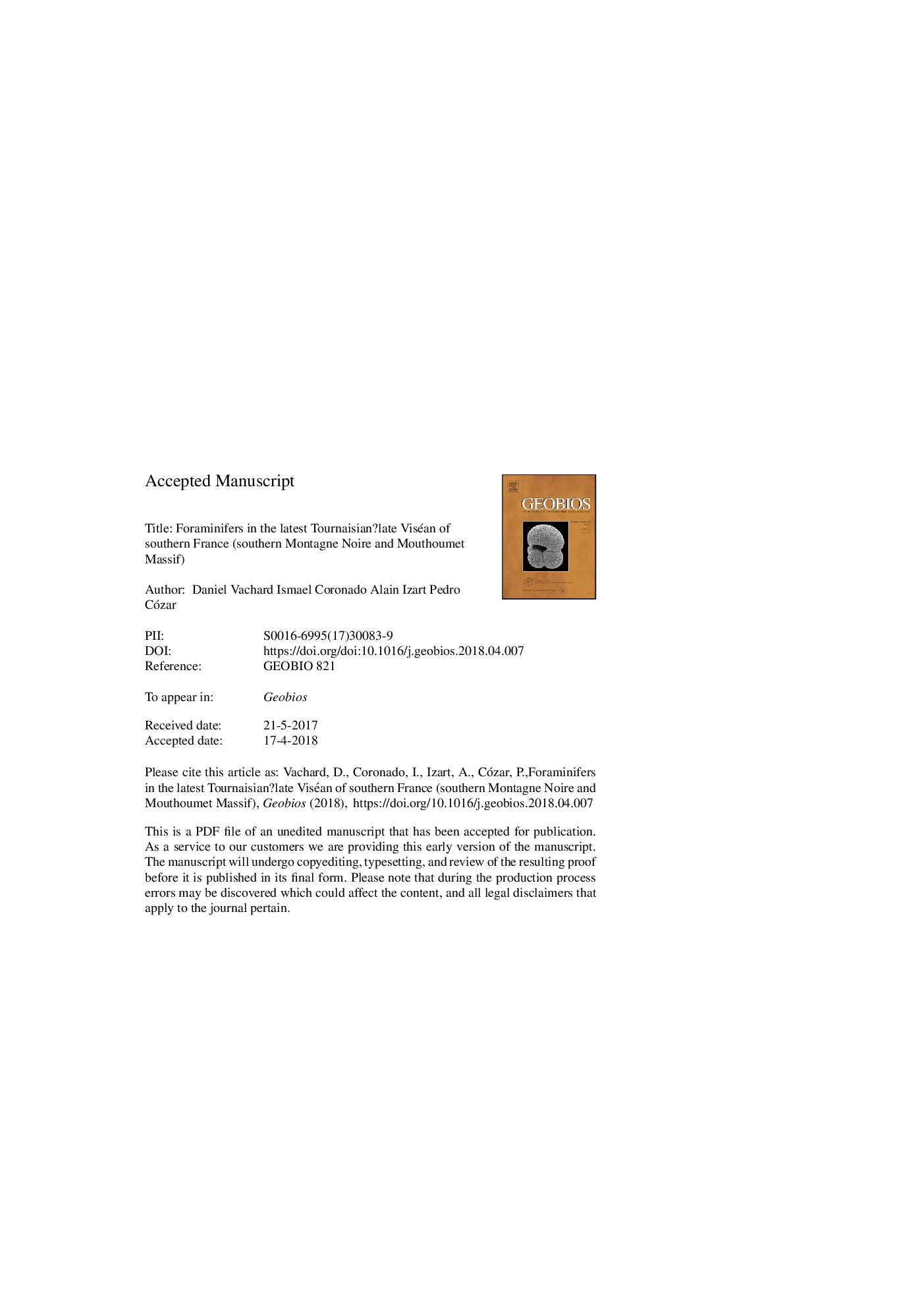| Article ID | Journal | Published Year | Pages | File Type |
|---|---|---|---|---|
| 8916445 | Geobios | 2018 | 31 Pages |
Abstract
In southern France, including the southern Montagne Noire and Mouthoumet Massif, foraminifers allow describing a biostratigraphical zonation for different formations included in those areas. Carbonate platforms are developed from the latest Tournaisian to the lower part of the late Viséan. In between, up to six additional zones have been recognized. The foraminiferal study also includes the first formal description of early Viséan foraminifers from the Vieussan area, a metamorphic area north of the main Mississippian stratigraphic sections of the Mont Peyroux nappe and écailles de Cabrières, as well as the dating of some preserved carbonates of the Mouthoumet Massif. Global foraminiferal guides are used for the definition of the zones, as well as other taxa considered as regional markers, but their detailed study might also be used for more continental to global level correlations. Lapparentidiscus irregularis nov. sp. and Ugurus intermedius nov. sp. are described.
Related Topics
Physical Sciences and Engineering
Earth and Planetary Sciences
Palaeontology
Authors
Daniel Vachard, Ismael Coronado, Alain Izart, Pedro Cózar,
